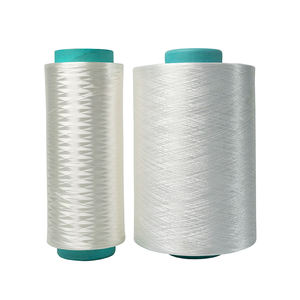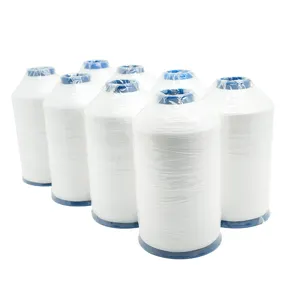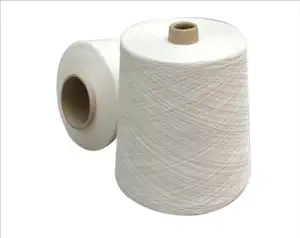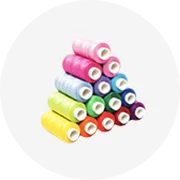
Factory Direct Sale Open Type Ultra High Molecular Weight Polyethylene 200D Uhmwpe Fiber Filament Yarn


High Temp Pure 100% Chemical-resistant Heat-resistant PTFE Yarn


















Raw yarn serves as a fundamental component in the textile industry, offering a diverse range of applications due to its various fiber compositions and blend ratios. This versatile material is sourced globally and is essential for manufacturers, designers, and craft enthusiasts alike.
The applications of raw yarn are extensive, ranging from fashion garments to industrial accessories. Cotton yarn, often mercerized for a lustrous finish, is a staple for sewing, mending, and button attachment. Synthetic yarns like nylon, known for their strength, are integral in crafting heavy-duty items such as tents. Rayon yarn, with its radiant sheen, is preferred for embroidery, while polyester yarn is a go-to for synthetic material products, including athletic wear. For delicate sewing requiring minimal visibility, silk yarn is unmatched, and for comfort and warmth, wool yarn is the choice for soft, fluffy textures.
The composition of raw yarn is as varied as its uses. Each type of yarn brings unique features to the table; for instance, nylon yarn's durability makes it suitable for items that undergo significant wear and tear. In contrast, the softness of wool yarn makes it ideal for cozy apparel. The choice of material directly impacts the yarn's properties, such as tensile strength, elasticity, and finish, influencing its suitability for different applications.
Opting for raw yarn presents numerous advantages. Its adaptability allows for a wide range of product creations, from sturdy outdoor gear to delicate fashion details. The ability to select from various fibers enables manufacturers to tailor their products to specific functional and aesthetic requirements, ensuring that the end product meets the desired criteria for strength, flexibility, and appearance.
In today's market, the demand for sustainable and eco-friendly materials is on the rise. Many raw yarns are produced with environmental considerations in mind, offering options that are not only effective but also kinder to the planet. From organic cotton to recycled polyester, the choices available cater to a more eco-conscious consumer base while maintaining the functionality and diversity that raw yarn is known for.
Alibaba.com stands as a global marketplace connecting buyers with a multitude of suppliers offering an array of raw yarn options. Without making specific promises on quality or service, it is clear that the platform provides access to a vast selection of yarns to meet various needs and preferences, all while facilitating direct contact with wholesalers for sourcing purposes.